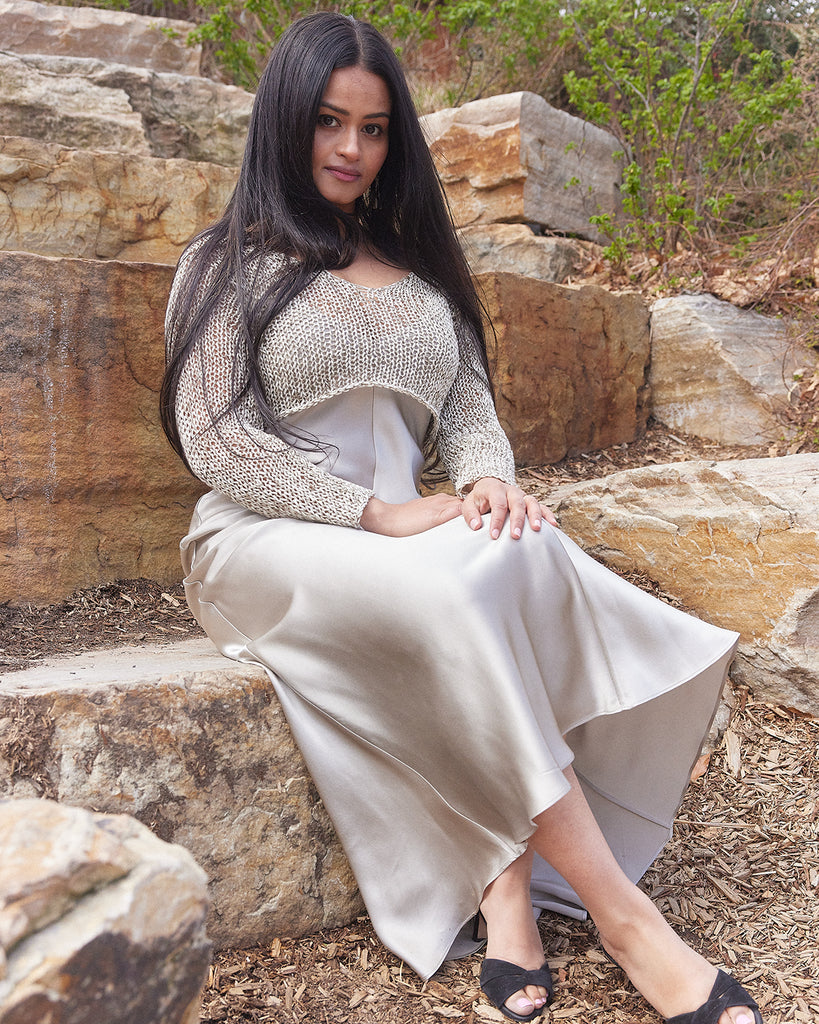#VOZWoman | Nimra Amjad Chohan

We’re honored to introduce you to our latest VOZ Woman, Nimra Amjad Chohan, founder of multiple climate justice non-profits including Climate+Positive Investing Alliance. With roots in Pakistan and Canada and now based on traditional Lenape land in New York City, Nimra is a renowned global environmental scientist, activist and author. She merges a scientific approach with evidence-based policy advocacy and has worked with diverse organizations such as WWF, The World Bank and International Union for the Conservation of Nature (IUCN). As an environmental activist, Nimra has led campaigns that have set legal precedents and designed pioneering research on climate change’s impact on women's traditional livelihoods. Here, Nimra shares her wisdom on community building, self-care as a climate activist, and physical and spiritual interconnectedness.

How did your upbringing influence your interest in climate activism and non-profit work?
My parents - my mother particularly - taught me that we live in systems that give us life and we must be a responsible part of those systems. As a Sufi Muslim, she helped me plant seeds as a toddler during playtime and reminded me to conserve water. Both my parents came from activist backgrounds, speaking out for justice and for those less privileged than them - organizing community, gathering like-minded thought leaders, seeking understanding of diverse spiritual traditions and cultures in our home was a part of daily life. My mother taught me that family is about shared values not national, ethnic or religious identity - and I find that the people in climate justice movements are like family to me.


How have you maintained your center of gravity and commitment to advocacy in a fast-paced city like New York?
The culture in New York can feel transactional, performative even. And yet there are incredibly authentic, real, deeply committed people here in the most diverse city in the world. Building a community based on shared values has become more important for me than what someone’s job title is or what they could want from me or I could want from them. Instead of asking “what do you do?” which is the usual way people greet each other in the city, I ask new people I meet in the city, “what gives you joy these days?” - and that has helped me maintain an authentic community of close and meaningful friendships and collaborators. I try to remain mindful that we are on Lenape territory and that’s the ground our feet touch everyday. The people in the climate movement are like my family and we are there for each other like family.


What is an important life lesson you've learned from working in this space?
Don’t give your time to projects and organizations that don’t align with your values. Build what doesn’t exist. Sustain what is working already. Platform those less privileged than you. Don’t overwork yourself - rest is sacred and sustains life. Self care is key.

What does it mean to you to be a VOZ Woman?
VOZ's story and way of doing business deeply resonates with my values and passion for slow fashion that empowers communities and sustains traditions. The work of weaving is both transformational and spiritual and climate-positive.
In Punjabi Sufi culture we refer to hand woven garments as “tana, bana”, Sanskrit and Punjabi for “warp, weft”, representing “space, time”, “dark, light” “masculine, feminine” - it features very prominently in our spiritual poetry. The intricate weaving of the warp and weft threads, is often used as an allegory to represent the interconnectedness of the physical and spiritual worlds, the intricacies of human relationships, the delicate balance between individuality and interconnectedness, and the blending of the sacred and the profane. In both Punjabi Sufi and Hindu philosophy, the "tana bana" is seen as a metaphor for the human soul, with the warp representing the eternal, unchanging essence, and the weft representing the ever-changing physical manifestation. The weaving of the two signifies the spiritual journey of the soul, constantly interacting with the material world.
Hand woven garments made thoughtfully that support and sustain our planet and indigenous cultures feel good to the soul and the body. As someone who collects hand woven craft, I feel deeply connected to what Voz is trying to achieve authentically. I love that Voz sanctuary has provided space for artists, activists and founders to gather and connect and build community.

We're so grateful for the opportunity to share Nimra's story with the VOZ Community. Follow her journey at Climate+Positive Investing Alliance & Nimra Chohan on Instagram.
![]()
